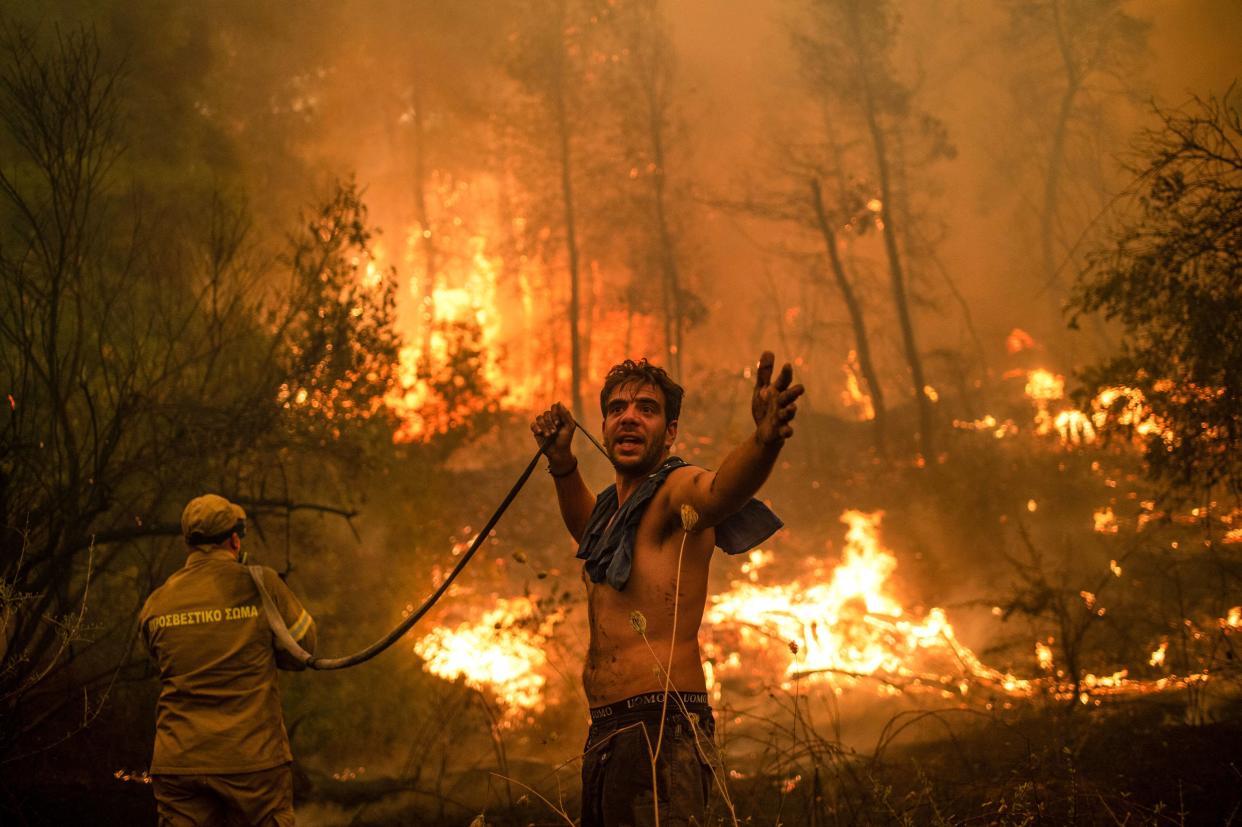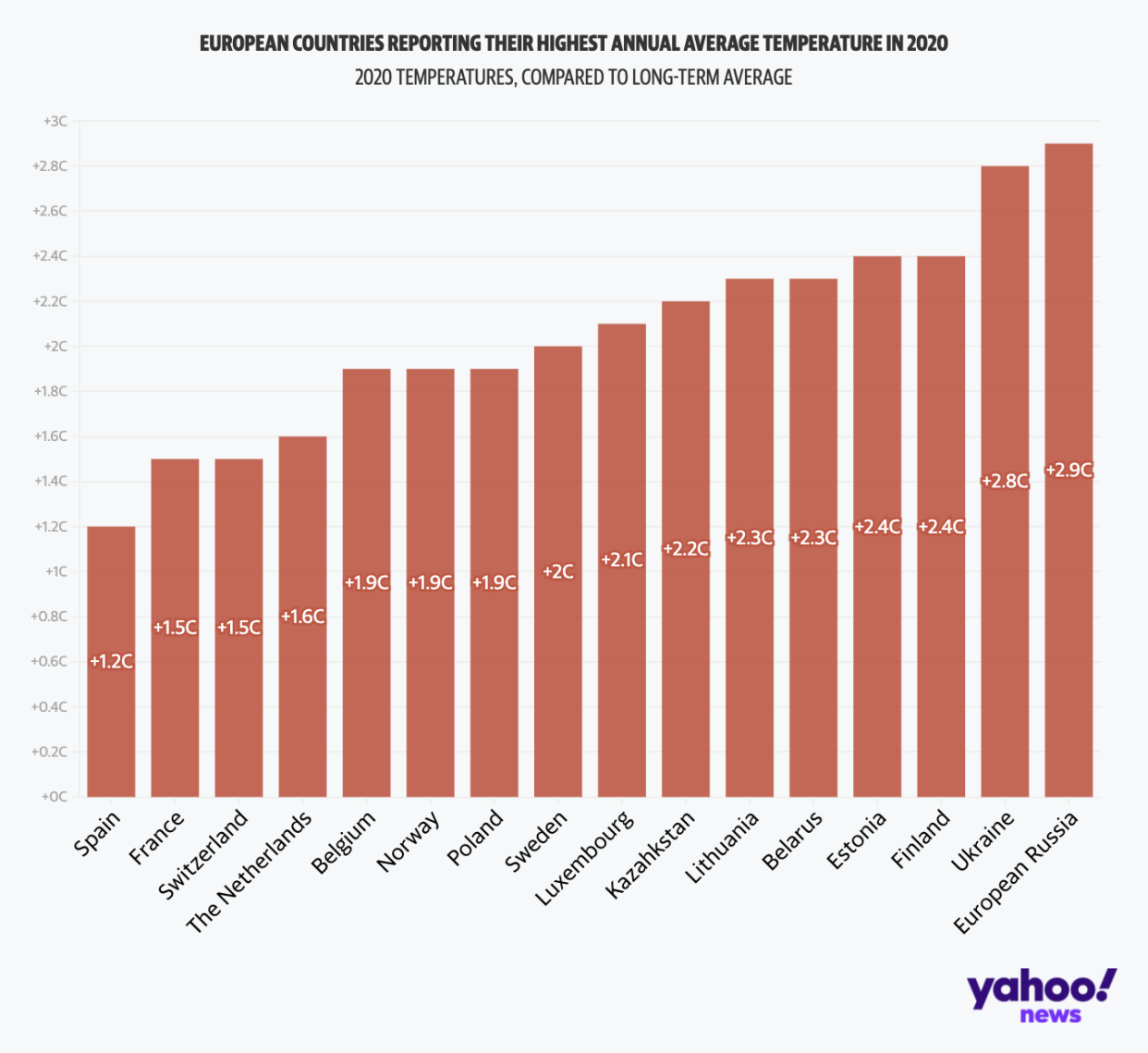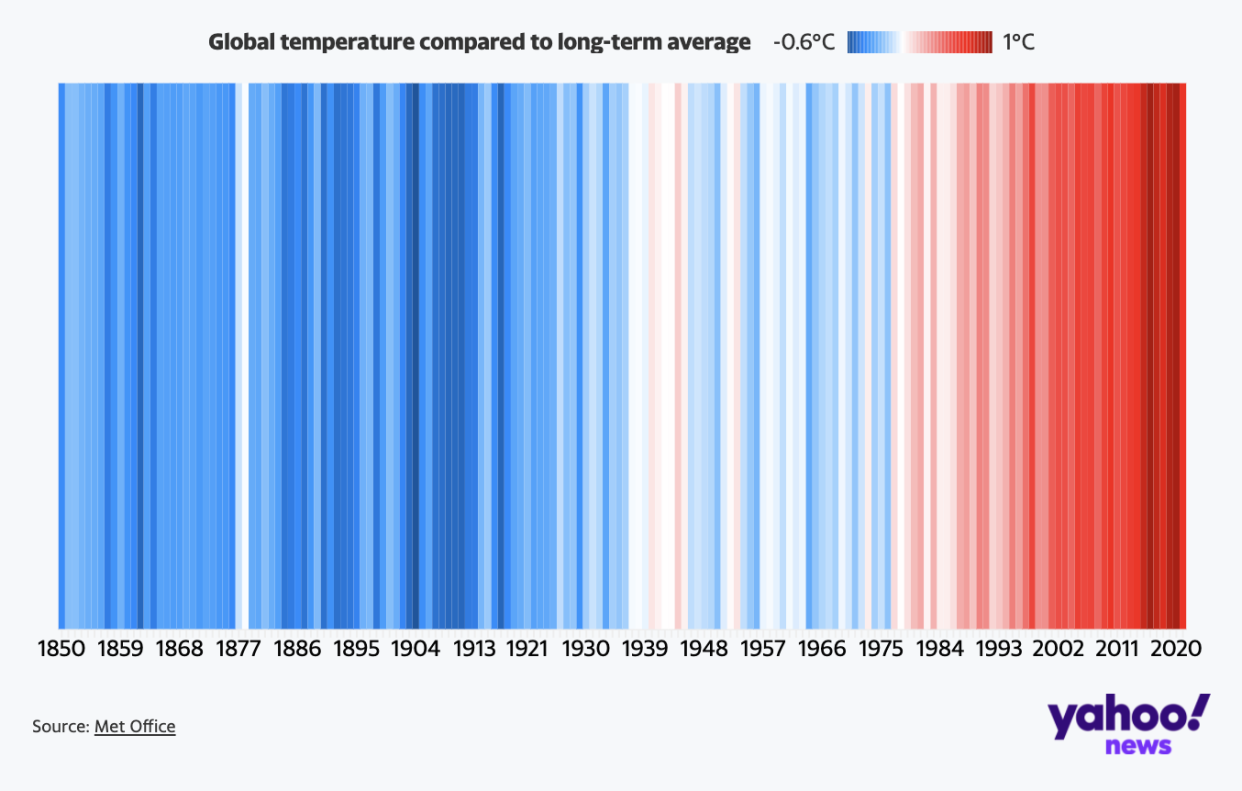Europe 'recorded hottest year ever' in 2020 by significant margin

Experts have warned of the urgent need to curb greenhouse gases after a report found 2020 was Europe’s hottest on record by a large margin.
The 31st annual State Of The Climate report, published by the American Meteorological Society, found the average temperature in Europe last year was 1.9C above the long-term average between 1981 to 2010.
Parts of the continent including Luxembourg, Sweden, Finland and European Russia saw temperatures 2C or more above the average for recent decades.
Although parts of north-west Europe were relatively cooler, the UK still saw its third hottest year on record in 2020, after 2014 and 2006. Temperatures were 0.78C above the 1981-2010 baseline.

The report comes after the UN’s Intergovernmental Panel on Climate Change (IPCC) review of climate science earlier this month said the global temperature in 2020 was nearly 1.1C warmer than 19th-century levels.
It said humans are unequivocally driving global warming and that the impacts are already being felt, with more extreme heatwaves, rain and floods as well as rising sea levels.
It warned this will worsen further without action to curb temperature rises.
Watch: Landmark IPCC climate change report is 'code red' (from 9 August)
The Met Office’s Dr Kate Willett, co-editor of Wednesday's report’s global climate chapter, said it is becoming abundantly clear historically that unusual values of humidity, drought, extreme rain and temperatures are the new normal.
She said: “This report follows closely on the latest IPCC report, which could not be clearer in its messaging – our climate has changed and is likely to continue changing unless the key driver, greenhouse gases, are curbed, and what we’re seeing now is already straining our society and our environment."
It follows the extreme heat seen in recent weeks in countries such as Italy, Greece and Turkey.

Some regions have been engulfed in wildfires, with temperatures as high as 47C.
Similar heatwaves and wildfires have also caused dozens of deaths in the US and Canada this summer.
Meanwhile, the State Of The Climate report showed the average surface temperature over land areas in the Arctic was the highest since the data record began in 1900.
Last year was also the seventh successive year that annual temperatures in the Arctic were more than 1C above the average for the period 1981-2010.

The report also said coronavirus measures such as lockdowns and travel restrictions only reduced carbon dioxide emissions by about 6% to 7% during 2020, with concentrations of the greenhouse gas reaching record levels.
The Met Office’s Dr Robert Dunn, lead editor for the global climate chapter of the report, said: “This report adds to all the other evidence that human-induced climate change is affecting every part of the globe, but not all regions are experiencing the change at the same rate.
“The Arctic is continuing to warm at a faster pace than lower latitudes, but Europe’s annual average temperature is also increasing quite rapidly, with the five highest annual temperatures all occurring from 2014.”
Responding to the report, Dr Michael Byrne, lecturer in climate science at the University of St Andrews, said: “We know the climate is warming, so it is no surprise that Europe experienced its hottest-ever year in 2020.
Read more:
Rainfall that led to deadly German floods ‘was made more likely by climate change’
“But what is surprising is the pace of warming. A rise of 1.9C compared to 1981 to 2010 is rapid, unprecedented and worrying.”
He said the report highlighted that even if the world managed to limit global warming to 1.5C above pre-industrial 19th century levels, as countries signed up to in the global Paris climate agreement, temperature increases in many parts of the world, particularly over land, would far exceed 1.5C.
Watch: We cannot overestimate the power of storytelling about the climate crisis – Greta Thunberg



